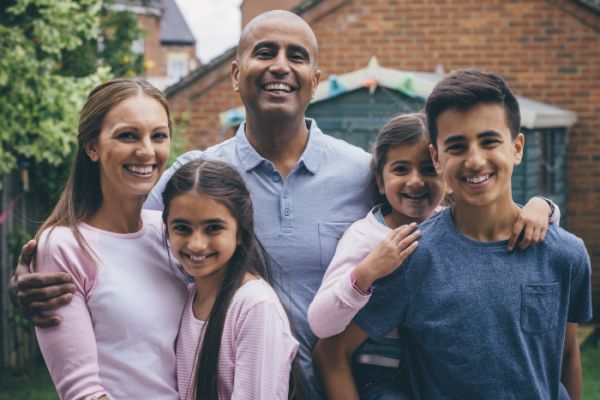As practitioners, we have the power to drive systemic change by supporting initiatives that bring greater inclusivity into practice. It’s time we genuinely amplify Gypsy, Roma and Traveller voices in mental health through greater representation, dedicated training, and a strong commitment to accessibility.
’Gypsy’, ‘Roma’, and ‘Travellers’ refer to diverse groups with distinct histories, cultures, and beliefs. The abbreviation ‘GRT’ includes both settled and nomadic communities. Gypsies and certain Traveller groups are legally recognised as ethnic groups protected from discrimination under the Equality Act 2010. As one of the most underrepresented groups in mental health, both as clients and practitioners, the role and representation of GRT individuals within counselling and therapy professions requires our attention.
As members of BACP, we continuously seek ways to make our work more inclusive, respectful, and accessible to all. Cultural competency, which emphasises the importance of understanding a client’s unique cultural background is at the forefront of our work and training. But for marginalised communities like GRT people, who often experience systemic discrimination and face unique barriers to mental health services, I feel we must consider a critical question: Is it enough for all counsellors to simply be aware and culturally understanding of GRT clients, or is there a need for GRT counsellors from within these communities to increase accessibility and representation?
Understanding the unique needs of Gypsy, Roma and Traveller clients
As we know and often read, GRT communities face high levels of social exclusion, discrimination, and limited access to essential services, including psychological support. The mental health of GRT communities is a growing concern, as they experience disproportionately high rates of anxiety, depression, and suicide compared to the general population. Over 90% of GRT individuals face daily experiences of discrimination and racism, which contribute to significant mental health challenges. Research shows that GRT men are seven times more likely to die by suicide, and GRT women face suicide rates six times higher than the national average (Public Health Scotland, UK Parliament Committees).
These challenges have fostered a deep mistrust of institutions and professionals outside the community, causing GRT individuals to hesitate in seeking support for fear of judgment or misunderstanding. The critical question, then, is: what are we doing to address this? While a non-GRT counsellor's cultural awareness and competence are important, they may not fully meet the unique needs of GRT clients, who could greatly benefit from a deeper connection with counsellors who share their experiences and understand their heritage.
Reflecting on inclusion and understanding
What comes to mind when you hear the words ‘Gypsies, Travellers, and Roma’? People hold varied views on these terms, yet from past to present, GRT communities have faced ongoing struggles for acceptance and inclusion in society. As a practitioner, do you have GRT clients? Or are you aware of GRT mental health professionals in our field? Representation and understanding within our profession are crucial in addressing the unique challenges these communities face.
It’s important to recognise that each person’s relationship with their GRT ethnicity, culture, and traditions is deeply personal and unique. Some embrace and proudly celebrate their heritage, while others – often due to concerns about safety, discrimination, or access to opportunities – may choose to conceal their identity.
‘Passing’ is the act of presenting oneself in a way that aligns with a different identity, often to avoid discrimination or gain acceptance in social or professional settings. In my experience, concealment offered safety; therefore I chose not to disclose or draw attention to my background. This choice provided certain advantages, enabling me to avoid the stereotypes and biases often attached to GRT identity. Yet, it also created an internal disconnect as I navigated educational and workspaces more easily.
Only now, at this stage of my education and career, do I feel secure enough to openly share my GRT ethnicity and cultural background. My journey has been complex and deeply personal, highlighting the nuanced, sometimes painful decisions that GRT individuals face about revealing or concealing their identities.
The ethnic identity of GRT communities goes beyond a nomadic lifestyle; it embodies a shared ancestry, language, and a set of customs that remain significant even for those who no longer travel. This deep cultural heritage shapes their sense of self, even as some choose to ‘pass’ as non-Travellers in specific contexts. Our clients, colleagues, fellow BACP members, and perhaps even you reading this, may navigate these choices daily, weighing when and how to reveal or conceal identity. This underscores the need to foster an inclusive environment where all GRT individuals feel safe and supported, no matter how they choose to identify.
The need for representation within the profession
Just as clients from other minority communities often find comfort in practitioners who share or intimately understand their backgrounds, GRT clients could benefit greatly from counsellors who share their ethnicity and cultural knowledge. If we consider the powerful movements for greater Black, Asian, and other minority ethnic representation within the counselling field, there is strong precedent for how effective this approach can be. Enhancing our GRT representation within the profession could make a substantial difference to clients’ experiences of counselling and therapy. Therefore, I hope to contribute to a similar initiative that could serve as a bridge to meaningful mental health support, allowing clients to explore their mental health concerns without the added burden of explaining or defending their culture.
In my ongoing efforts to support the mental health of GRT communities, I am planning to undertake a PhD focused on ‘Enhancing Equality, Diversity, and Inclusion in Counselling Services for Gypsy, Roma, and Traveller Communities’. Despite the existing research on the educational challenges and social issues faced by GRT communities, there is a notable gap in the literature regarding GRT people’s perceptions, engagement, and experiences with mental health and counselling services. Very little research has been conducted to understand how GRT individuals perceive mental health support, their experiences when accessing these services, or the barriers they face in doing so. This lack of research leaves a significant void in our understanding and hinders the development of effective, culturally sensitive counselling practices.
The GRT Therapists’ Network serves as a platform for GRT therapists, mental health professionals, counsellors, and trainees to connect, collaborate on advocacy, and provide mutual support. This platform also signals to GRT clients that a culturally sensitive option is available to them, should it align with their preferences or needs. Through representation, we can help dismantle the historical distrust many GRT individuals feel toward mental health services and create a more inclusive environment that encourages open dialogue and support.
The idea of encouraging GRT-led mental health initiatives is one that could radically change the accessibility landscape. This isn’t to say that counsellors without GRT heritage cannot be effective; rather, it’s about exploring whether additional pathways for GRT representation might better serve the community.
Invitation to join the GRT Therapists’ Network
I am reaching out to invite fellow BACP members from the Gypsy, Roma, and Traveller communities to join me in forming a new GRT Mental Health and Counselling Professionals Steering Group. Our community of practice will focus on research, advocacy, and CPD for counselling professionals. Non-GRT Allies working with or representing the community are also warmly welcomed to connect and contribute.
This important work will connect with BACP’s Policy and Public Affairs work, advising on how our efforts can align with broader BACP goals.
Please join me on the community of practice discussion forum to start the conversation.
Read more...

Essential guide for leaders providing school-based counselling provision - a quick guide
Our guide contains suggestions to equip schools with the knowledge needed to successfully embed a counselling service in a school.

Children, young people and families
Promoting the importance of early intervention and access to timely psychological therapies for children, young people and families is a priority for BACP.

Blogs and vlogs 2025
News and views from members, staff and clients
